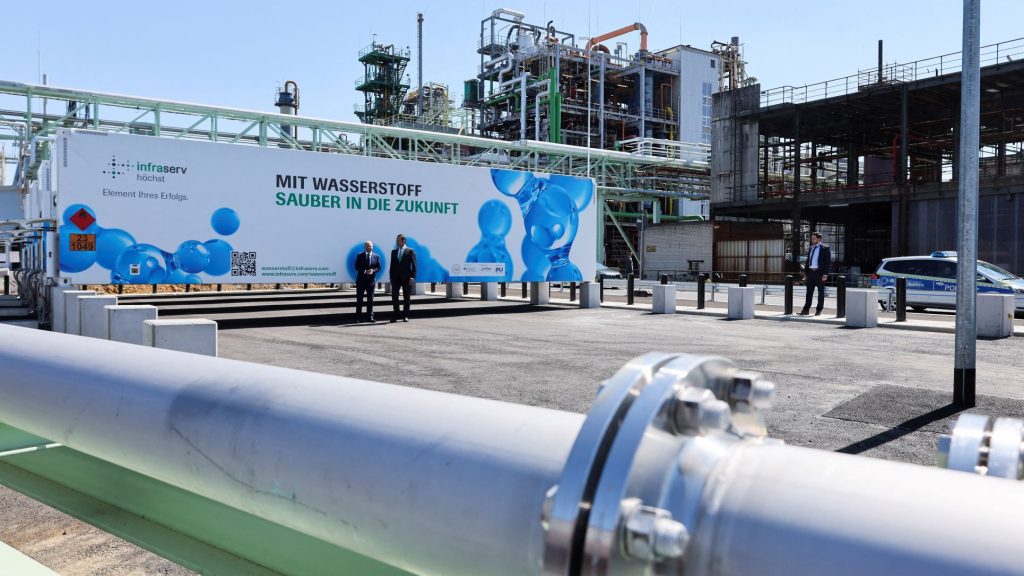Germany To Seek Bids For Hydrogen-Ready Power Plants By Early 2025

Germany said on Friday it will launch the first tender for the construction and modernisation of 12.5 gigawatts (GW) of gas power plants that can switch to hydrogen by the end of 2024 or early next year, following industry pressure.
The tenders are part of efforts to supplement wind and solar energy and speed up the transition to low carbon generation as Germany shifts to renewables, having switched off nuclear power.
Germany’s top utilities, notably RWE, EnBW and Uniper, have long criticised the lack of details for the scheme, warning that this could put at risk Germany’s plan to accelerate the phase-out of coal.
The plans include two tenders for building new hydrogen-ready gas power plants, each round of 5 GW capacity, in addition to 2 GW tenders for retrofitting old gas power plants for the use of hydrogen, 0.5 GW of long-term storage and 0.5 GW for fully-hydrogen-powered plants, the economy ministry added.
Investment costs and the difference in operating costs between hydrogen and natural gas will be subsidised for 800 full-load hours per year once the switch to hydrogen is made, the ministry said in a statement.
Uniper CEO Michael Lewis said the company was prepared to play its part in upcoming talks and that it would participate in the scheme, provided conditions are favourable.
RWE, Germany’s largest power producer, said it was good that the first tenders would start soon, adding it was now waiting for specifics, which it would then analyse.
“It is important that the details of the auction design are made known to potential bidders in good time, as participation in an auction requires a certain amount of preparation and there is time pressure,” EnBW CEO Georg Stamatelopoulos said.
The tenders will be divided into two phases, with a deadline of eight years for the first-phase-constructed plants to switch to green or blue hydrogen, the ministry said.
The plants will be predominantly be built in southern Germany, where much of the country’s industrial complex is located, to enhance grid stability and cut costs.
Germany last month won the European Union’s informal approval to pay billions of euros to subsidise the power plants.
(Reporting by Riham Alkousaa and Christoph Steitz; Editing by David Evans and Alexander Smith)




